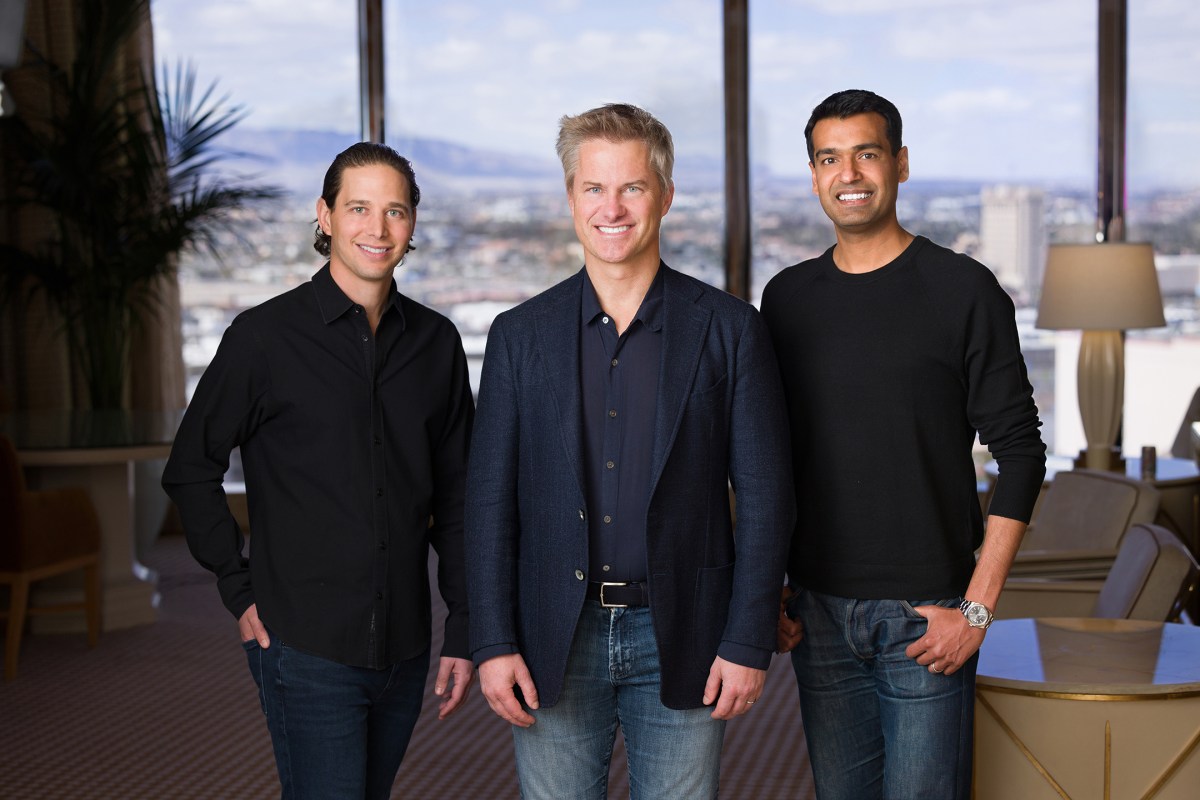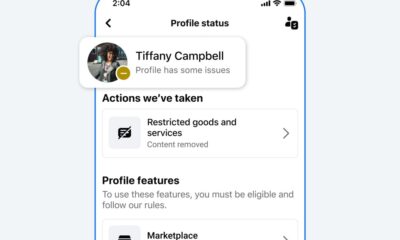Startups
The Teenage Investment Revolution: How This Top VC is Banking on Gen Z

Kevin Hartz tends to be first through the door. In 2001, he co-founded Xoom, back when sending money across borders meant standing in line at Western Union. In 2013, it went public, and in 2015, PayPal paid $1.1 billion for it. Four years after launching Xoom, he co-founded Eventbrite, which went public in 2018 and turned buying event tickets into something you could do without wanting to throw your laptop in the ocean.
After a stint at Founders Fund, Hartz co-founded his own venture firm, A* Capital (a nod to a computer science algorithm), then in 2020, he spotted another trend before the masses: the SPAC boom. His blank-check company, “one,” swallowed up 3D printing outfit Markforged in a $2.1 billion reverse merger in 2021, right as every other financier in Silicon Valley suddenly decided SPACs were the future.
Now Hartz is onto his next thing — teenage founders, not as a social experiment but as an unplanned investment thesis. His firm recently cut a check to Aaru, an AI-powered prediction engine with one founder who was too young to get his driver’s license at the time. Hartz is not alone in this by any stretch. The dropout-and-build movement, made most famous by founders like Steve Jobs, Bill Gates, and Mark Zuckerberg, is becoming a standard lifestyle choice for a certain kind of ambitious kid.
Consider Cory Levy, who was interning at Founders Fund, Union Square Ventures, and Techstars while still in high school, then bailed on the University of Illinois after freshman year. Today he runs Z Fellows, a one-week accelerator that hands technical founders — even high schoolers — $10,000 grants. When Levy dropped out a decade ago, the Thiel Fellowship was a radical new idea. Now, the “community of dropouts is at an all-time high,” he told Business Insider last spring. “At a big group dinner of 15 or 20 people, we’ll look around the table, and no one has a college degree.”
It’s becoming enough of a “thing” that the accelerator Y Combinator, which has quietly reinforced drop-out culture since its outset, recently rolled out a program that’s designed for students who want to start companies but don’t want to drop out. The program allows them to apply while still in school, get accepted and funded immediately, and defer their participation in YC until after they graduate. (For YC, known for being countercultural, the move is very on brand.)
Naturally, TechCrunch has been covering the trend: see here and here and here. But to learn more, I’ll be sitting down with Hartz at the StrictlyVC event inside TechCrunch’s rollicking Disrupt show, kicking off in San Francisco on Monday, October 27. (Hartz is talking on Tuesday, October 28.)
In the meantime, here are excerpts from a chat we had on Friday, where we started to explore the topic:
Techcrunch event
San Francisco
|
October 27-29, 2025
TC: We’ve always seen teenagers starting companies, but it certainly feels like we’re seeing more of it than ever before, and you’re telling me this is the case behind the scenes. Why do you think that is?
Kevin Hartz: You find these really bright kids who are just very bored in school. I see classes of Stanford freshmen or sophomores who fall into this category — they were completely bored, some ended up homeschooling, and just excelled. Even in top universities, they still go and drop out with a thirst to build, to learn, to push the envelope. We had one company where the founders were 18, 18, and 15. I think the CTO is probably 16 now, but he was 15 at the time we backed them. But that’s not really unusual.
How does Z Fellows compare to the Thiel Fellowship, launched years ago by Peter Thiel?
It’s incredibly similar. The difference is the Thiel Fellowship is a nonprofit, and — I’m a big fan of Peter’s — but as a nonprofit, you’re maybe not out there hustling as hard. Cory [has] just [been] out there building Z Fellows over the last few years, and it’s a really great program. It’s this thing again of Peter being ahead of the curve, seeing the value in the irony of offering money to drop out. That phenomenon has been growing and building, and who knows how far it’s going to continue, especially with the cost of universities and what a lot of people see as a toxic environment in universities with poor administration. All this lines up to drive teenagers to ask, ‘Why don’t I just drop out and build?’
Does Z Fellows take equity in the companies?
They offer a very small check — $10,000. Then there’s a fund where they back people later on down the line. But it’s mostly a no-obligation $10,000 initial piece. I think Cory selects a couple people to put in $100K into pre-seed [rounds], too.
What do you make of the statistics we’re seeing, related to kids not being able to get jobs out of school? I have to think some of this is driven by the realization that even if you graduate, there may not be a job waiting for you.
There’s this other phenomenon happening — this flipping that’s supposed to happen in ’26 or ’27 where there will be more 1099s than W-2s. That just means that 30 years ago, people worked for big corporations like Nestlé or McKinsey or IBM. Now they’re working for themselves. They’re trading crypto or building their own businesses. That points to American individualism. It’s almost like the United States is going into entrepreneurial hyperdrive.
I think it’s because people want to start companies, but I also think that, increasingly, people have to start companies as they get elbowed out of their roles owing to efficiencies gleaned though AI and otherwise.
Paul Graham said something years ago that has always stuck with me, that it’s both good and bad for a young founder when their startup takes off, because it takes over their life. You were a young entrepreneur.
Funding Teenage Entrepreneurs: An Exciting but Challenging Venture
Investing in a 15-year-old entrepreneur can be both thrilling and daunting. While the potential for success is high, there are also concerns about the missed opportunities for typical teenage experiences. At this age, individuals are often fearless and driven, much like Marines sent into battle. However, the implications of supporting such young entrepreneurs are still not fully understood, given the novelty of this trend.
The tech industry is currently experiencing a period of rapid expansion, particularly in the field of AI. Companies like OpenAI and Anthropic are growing at a remarkable pace, laying the groundwork for future advancements. As we move towards developing application layers, startups like Cognition, Decagon, and Sierra are emerging in various sectors. Despite these advancements, there are still numerous untapped opportunities for disruption, indicating that we are only at the beginning of this tech revolution.
Parental Perspectives on Entrepreneurship vs. College
When it comes to their children’s future, parents often face the dilemma of encouraging traditional education or supporting entrepreneurial ambitions. While some teenagers may choose to forego college in pursuit of their business dreams, others value the college experience. In the case of the interviewer’s daughter, who is currently applying to colleges, she has expressed a desire for the traditional college experience. However, the door remains open for exploring alternative paths, as seen in the parent’s approach with their younger child.
The Growing Trend of Investing in Teenage Entrepreneurs
Over the past year, there has been a significant increase in investments in teenage entrepreneurs, accounting for approximately 20% of all bets made by investors. This marks a substantial rise from just 5% two years ago, indicating a growing trend in supporting young innovators.
-

 Facebook4 months ago
Facebook4 months agoEU Takes Action Against Instagram and Facebook for Violating Illegal Content Rules
-

 Facebook4 months ago
Facebook4 months agoWarning: Facebook Creators Face Monetization Loss for Stealing and Reposting Videos
-

 Facebook4 months ago
Facebook4 months agoFacebook Compliance: ICE-tracking Page Removed After US Government Intervention
-

 Facebook4 months ago
Facebook4 months agoInstaDub: Meta’s AI Translation Tool for Instagram Videos
-

 Facebook2 months ago
Facebook2 months agoFacebook’s New Look: A Blend of Instagram’s Style
-

 Facebook2 months ago
Facebook2 months agoFacebook and Instagram to Reduce Personalized Ads for European Users
-

 Facebook2 months ago
Facebook2 months agoReclaim Your Account: Facebook and Instagram Launch New Hub for Account Recovery
-

 Apple4 months ago
Apple4 months agoMeta discontinues Messenger apps for Windows and macOS





























